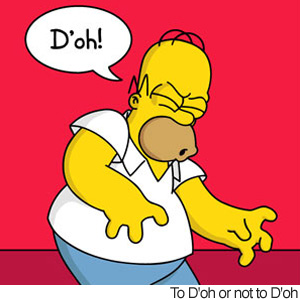Recently, tightrope daredevil Nik Wallenda bridged the void between the United States and Canada by walking over Niagra Falls on a taut wire (read about it here). Millions of people watched the televised feat, caught up in the suspense of one man battling the dark misty night over the roaring falls. After a thirty minute walk, Wallenda was welcomed to the Canadian side by a crowd of 100,000 cheering fans, accomplishing what no man had done in 118 years.
While Wallenda’s stunt garnered the attention of so many people, every single day each of us struggles to balance, often alone, on our own tight rope stretched over a similar void - unhappiness. Where the Niagra stunt took thirty minutes to accomplish, our own balancing act takes our entire adult life.
For the last year, I have been adjusting to my newly chosen life as a private lesson teacher. For the past five years, as a band director, I had certain challenges to my balance - where Wallenda had the dark blinding him, the mist condensing on his rope, and the roaring current pouring over the cliffs, I was challenged by the stress of performance expectation, the day to day business of running a high school band, parents, and the time required to feel accomplished in my efforts. Part of the reason I stepped off the band directing tight rope was to have more control over the last - my time. In my new life, this has truly been the hardest challenge.
Band directing, or teaching in general, has a tendency breed workaholics. Though the work day finishes, many teachers choose to stay beyond regular hours. As a band director, I had planning meetings, rehearsals, booster meetings, after-hours school commitments, lesson planning, etc. My associates taught sectionals, ran jazz band and percussion rehearsals, and attended weekend competitions for various band related activites. The list goes on.
Stepping out of this life, only having to work the hours I chose to work, I assumed my work-life would balance itself against my personal life on its own. What I didn’t figure is that I wouldn’t know how to not work. I worried that if I wasn’t careful, I would succumb to the same routine I experienced as a band director.
This summer, I pledged to make sure to give myself days off. During the school year, while the hours I worked per week were less, I was working seven days a week. It has been weird, waking in the morning and knowing I don’t have to do do anything for my job. Instead, I am able to fill my time with ME.
Finding time for me has settled down the currents battering my own wire. I am learning how to be “off,” and that every waking minute doesn’t have to be filled with work. I can still be productive - building personal relationships, working around the house, pursuing individual projects, training for a triathlon - but it doesn’t have to be work. I also give myself permission to relax, catching up on reading or TV shows I have missed. Having time for yourself builds the balance we all strive to achieve.
We frequently chain ourselves to our situations, crying about their permanence, but every situation is mutable. Create the right conditions to traverse the void in your life and ease the buffeting forces threatening to knock you from your happiness. Balance is possible.
Not to take anything away from Nik Wallenda’s accomplishment, but due to ABC’s insurance concerns, had his balance abandoned him, a safety harness would have caught his falling body before it plunged into the dangerous falls. We do not have the same luxury. Find your own balance before life forces you to take the plunge into the unhappiness that waits the unbalanced life.
 The implied rationale is that driving contains a certain amount of danger; pay attention while doing it. More often than not, the old commercial pops into my mind while driving through my neighborhood. We have a nice running loop frequently populated by fitness enthusiasts, little kids on bikes, and parents with strollers. The nicer the weather, the more people you will see. Unfortunately, it is the people you don’t see you have to worry about. I make sure to keep my eyes peeled.
The implied rationale is that driving contains a certain amount of danger; pay attention while doing it. More often than not, the old commercial pops into my mind while driving through my neighborhood. We have a nice running loop frequently populated by fitness enthusiasts, little kids on bikes, and parents with strollers. The nicer the weather, the more people you will see. Unfortunately, it is the people you don’t see you have to worry about. I make sure to keep my eyes peeled.





















